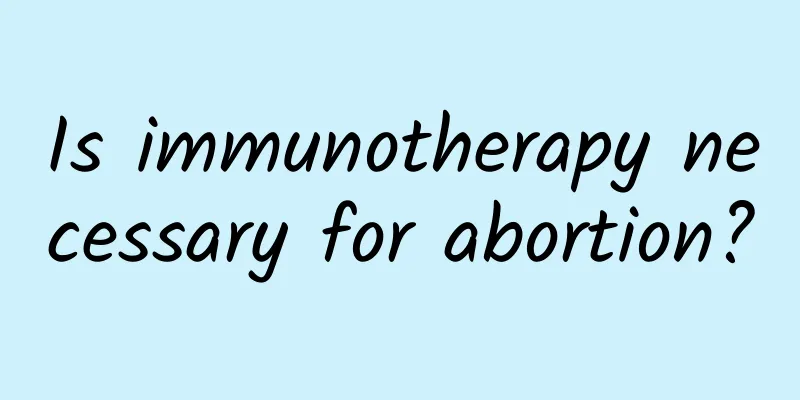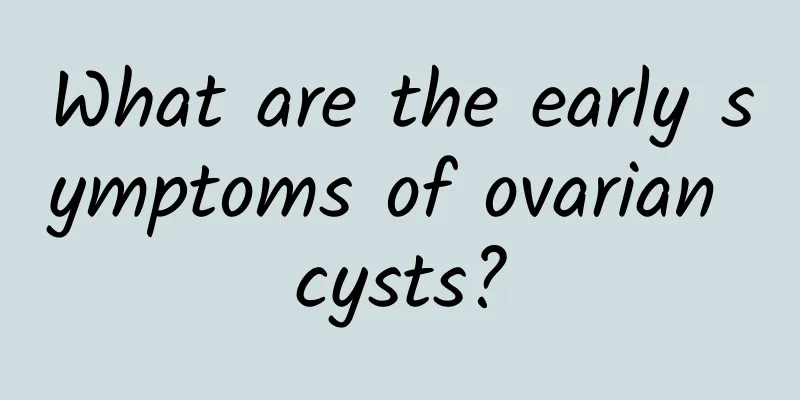Is immunotherapy necessary for abortion?

|
When visiting the clinic, you can see that many doctors recommend immunotherapy for patients with multiple miscarriages, but most patients do not know why they need immunotherapy. So many patients will ask such a question: Is immunotherapy necessary for miscarriage? Let me answer it for you below. Most miscarriages have a certain development process. Although some stages are not obvious in clinical manifestations and do not necessarily develop in sequence, they generally include the following processes, namely the clinical classification: threatened miscarriage, inevitable miscarriage, incomplete miscarriage and complete miscarriage. Postponed miscarriage is another special case of miscarriage development. Habitual miscarriage is named after its characteristic of repeated miscarriage, but both still include the above clinical classifications in the process of miscarriage. To know whether immunotherapy is necessary, the patient must first confirm the type of miscarriage. Except for habitual miscarriage, other types of miscarriage can be basically cured by targeted treatment after the cause is found. However, for patients with habitual miscarriage, immunotherapy is imperative. The causes of habitual abortion are complex, mainly including genetic defects, anatomical abnormalities, endocrine abnormalities, immune factors, infections, systemic diseases and environmental factors. Among them, the incidence of unexplained habitual abortion is about 50%. Therefore, it is of great significance to explore its causes and take appropriate and effective treatment methods according to the causes. A large number of clinical practices at home and abroad have shown that active immunotherapy using the husband's or a third party's lymphocytes is a relatively safe and effective method. Active immunotherapy can induce and stimulate the mother to produce alloimmune responses, produce antibodies that have immune protection effects on the embryo of the next pregnancy, and prevent the fetus from being attacked by the mother's immune system, allowing the pregnancy to continue. Its success rate can reach 85% to 90%. Before immunotherapy, make sure that the man does not suffer from blood-borne infectious diseases (such as hepatitis, HIV infection, etc.), draw 50 ml of peripheral anticoagulant blood from the husband or a third party, separate 2 ml of lymphocytes with lymphocyte separation fluid, and give it subcutaneously to the woman. Each injection should be done 3 to 4 weeks apart (avoid the menstrual period), and each course of treatment should be 3 times. The first three times of pregnancy constitute one course of treatment. After the course of treatment, the antibody is rechecked. After the antibody turns positive, the patient is encouraged to get pregnant as soon as possible within six months. After the pregnancy is confirmed, 2 to 3 more active immunotherapy treatments are carried out to consolidate the therapeutic effect. Lymphocyte immunotherapy has been widely used around the world and is currently a relatively safe and effective method for treating unexplained habitual abortion. |
<<: How to cure habitual abortion with high cure rate
>>: Immunotherapy for recurrent miscarriage
Recommend
How to prevent vaginitis in daily life
What should you do if you have vaginitis? How to ...
Is artificial abortion more harmful or is the contraceptive pill more harmful? You must know these points about abortion and medical abortion
Many men don't like wearing condoms, so contr...
Patients need to know about the dangers of pelvic inflammatory disease
As the number of patients with pelvic inflammator...
What are the hazards of cervical erosion? 3 symptoms that cervical erosion may cause
Cervical erosion can lead to increased vaginal di...
Introduction to Western Medicine Treatment of Cervical Hypertrophy
In life, cervical hypertrophy has affected the no...
3 major causes of adnexitis
Adnexitis refers to inflammation of the fallopian...
Which department should I go to for abortion? What should I pay attention to during abortion?
Best time for artificial abortion Early artificia...
Surgical treatment of Bartholinitis
Bartholinitis in women is mostly caused by an inf...
Prevention of cervical hypertrophy starts from daily life
There are many gynecological diseases in women, a...
Expert introduction: How to completely cure chronic adnexitis
Chronic adnexitis is the most common gynecologica...
Staying up late for a week and gaining 2 kg, I’m so disgusted! 2 secrets for night owls to eat late night snacks without gaining weight
The FIFA World Cup in Russia has begun. Muscular ...
Things to note when enhancing ovarian function
Women's ovaries are areas that require specia...
What are the symptoms of vulvar leukoplakia?
Vulvar leukoplakia is a type of gynecological dis...
Honey water promotes digestion, helps lose weight and detoxifies! 4 key best times to drink honey water
Honey is rich in antioxidants and contains more t...
The following experts introduce the complications of abortion
Abortion is a common phenomenon in modern society...









